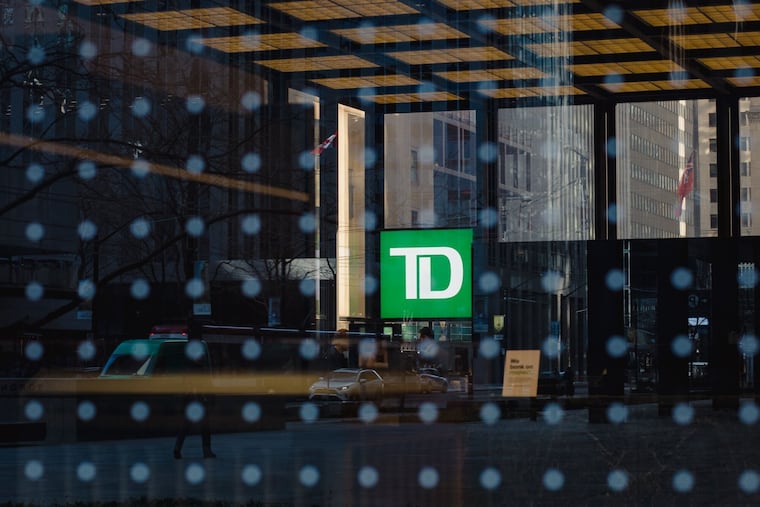TD Bank shared false information that tarnished thousands of customers’ credit reports, a watchdog found. Now it has to pay up.
Affected customers will be getting $150 checks.

TD Bank must pay tens of thousands of customers more than $7.7 million, and give another $20 million to a broader victims relief fund, after a federal consumer watchdog found that the bank shared inaccurate, negative information with credit reporting services over the course of several years.
The Consumer Financial Protection Bureau announced the findings of its investigation on Wednesday, saying that TD Bank, which has its U.S. headquarters in Cherry Hill, reported false information about the credit card and deposit accounts of more than 50,000 customers. Once TD officials became aware of some inaccuracies, it took more than a year to correct them, the CFPB found.
“When a bank botches its reporting on so many people — and then when they find out, they don’t quickly fix it — that is a huge problem and that is illegal,” said CFPB Director Rohit Chopra, a Voorhees native and Wharton graduate.
A TD Bank spokesperson said the company has addressed the issues in question.
“Long before this settlement, TD self-identified these matters and voluntarily and proactively implemented enhancements to our furnishing and dispute handling practices,” spokesperson Miranda Garrison said in a statement. “TD cooperated fully to resolve this matter and is committed to continuing to deliver on its responsibilities to its customers.”
Garrison did not immediately respond to a request for examples of the company’s self-identification of the problem or its proactive fixes.
TD Bank is legally required to pay each impacted customer $150, according to the CFPB order. Affected customers are to be notified via email and mail, and will be sent a check.
“Some customers will know” they have been impacted, Chopra said. “Others will not. Many people don’t regularly check their credit report.”
The inaccurate customer information shared with credit reporting services included accounts that bank officials suspected were fraudulently opened and others that customers had voluntarily closed, according to the CFPB. It also included bankruptcy and credit card delinquency information that was untrue. If a customer disputed a reporting matter, TD Bank failed to investigate it properly, if at all, the CFPB found.
The false information was then reported to services that compile consumers’ credit reports, which contain consumers’ personal information, credit history — including current and former accounts — and public records, such as lawsuits, arrests, and bankruptcy filings.
» READ MORE: Personal finance will soon be a high school graduation requirement in Pa. Can you pass a quiz on the subject?
“Those credit reports have detailed information about all of your loans and financial accounts, and that information is not shared by the consumers, it’s actually shared by banks and lenders,” Chopra said.
Banks, landlords, insurance companies, and other entities check reports to determine someone’s ability to make future payments. A bad credit report makes it harder to get approved for a loan, take out a mortgage, or rent an apartment. It can also increase the interest rates paid on loans.
“It has a really big effect on people,” Chopra said. “When you have an inaccurate credit report, it can be a silent pickpocket on so many of your financial transactions, because it makes the cost of loans more expensive for you.”
The CFPB also took an enforcement action against TD Bank in 2020 when the agency ordered the bank to pay $97 million to 1.4 million customers over illegal overdraft practices.